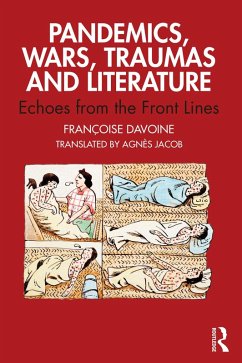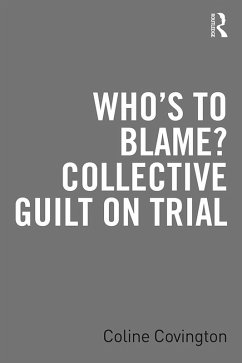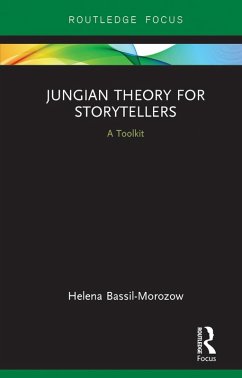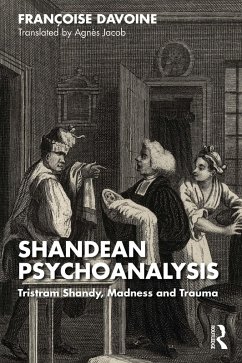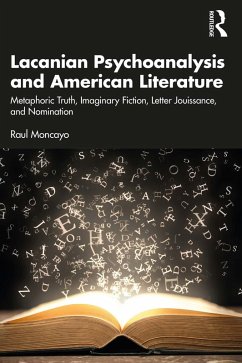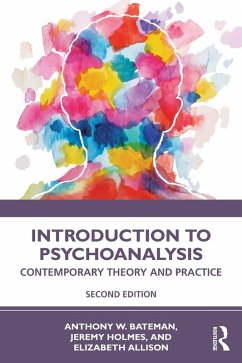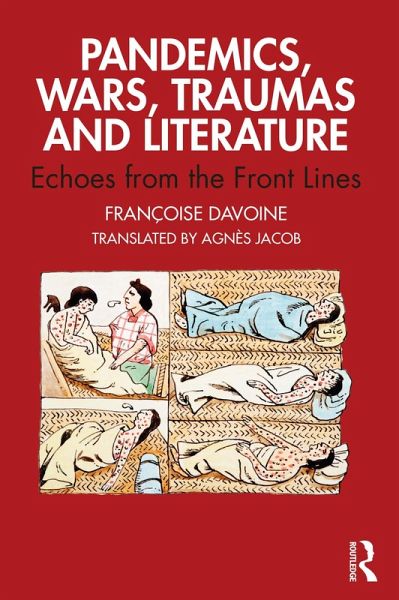
Pandemics, Wars, Traumas and Literature (eBook, PDF)
Echoes from the Front Lines
Versandkostenfrei!
Sofort per Download lieferbar
22,95 €
inkl. MwSt.
Weitere Ausgaben:

PAYBACK Punkte
11 °P sammeln!
This book presents unique insights into the experiences of frontline medical workers during the COVID-19 pandemic, psychoanalytic work with trauma and perspectives from literature.Part One presents a set of six 'testimonies', transcribed from video interviews conducted by Françoise Davoine with nurses, doctors and intensive care anaesthesiologists. These interviews are drawn on in Part Two, 'Frontline Psychoanalysis', which tells the story of transference related to catastrophic events, discovered and subsequently abandoned by Freud when he gave up the psychoanalysis of trauma in 1897. Davoin...
This book presents unique insights into the experiences of frontline medical workers during the COVID-19 pandemic, psychoanalytic work with trauma and perspectives from literature.
Part One presents a set of six 'testimonies', transcribed from video interviews conducted by Françoise Davoine with nurses, doctors and intensive care anaesthesiologists. These interviews are drawn on in Part Two, 'Frontline Psychoanalysis', which tells the story of transference related to catastrophic events, discovered and subsequently abandoned by Freud when he gave up the psychoanalysis of trauma in 1897. Davoine discusses the occurrence of this specific type of transference, both during the First World War, in which psychotherapists modified classical techniques and invented the psychoanalysis of madness in order to treat traumatised soldiers, and during the current and previous pandemics. The book also considers social and artistic responses to trauma, from the popularity of the Theatre of Fools after the Black Death ravaged Europe, to the psychotherapy described in such circumstances by Boccaccio's Decameron.
This accessible work offers an insightful reflection on trauma and the human experience. Pandemics, Wars, Traumas and Literature will be of great interest to psychoanalysts in practice and in training, psychoanalytic psychotherapists and academics and scholars of literature.
Part One presents a set of six 'testimonies', transcribed from video interviews conducted by Françoise Davoine with nurses, doctors and intensive care anaesthesiologists. These interviews are drawn on in Part Two, 'Frontline Psychoanalysis', which tells the story of transference related to catastrophic events, discovered and subsequently abandoned by Freud when he gave up the psychoanalysis of trauma in 1897. Davoine discusses the occurrence of this specific type of transference, both during the First World War, in which psychotherapists modified classical techniques and invented the psychoanalysis of madness in order to treat traumatised soldiers, and during the current and previous pandemics. The book also considers social and artistic responses to trauma, from the popularity of the Theatre of Fools after the Black Death ravaged Europe, to the psychotherapy described in such circumstances by Boccaccio's Decameron.
This accessible work offers an insightful reflection on trauma and the human experience. Pandemics, Wars, Traumas and Literature will be of great interest to psychoanalysts in practice and in training, psychoanalytic psychotherapists and academics and scholars of literature.
Dieser Download kann aus rechtlichen Gründen nur mit Rechnungsadresse in A, B, BG, CY, CZ, D, DK, EW, E, FIN, F, GR, HR, H, IRL, I, LT, L, LR, M, NL, PL, P, R, S, SLO, SK ausgeliefert werden.




